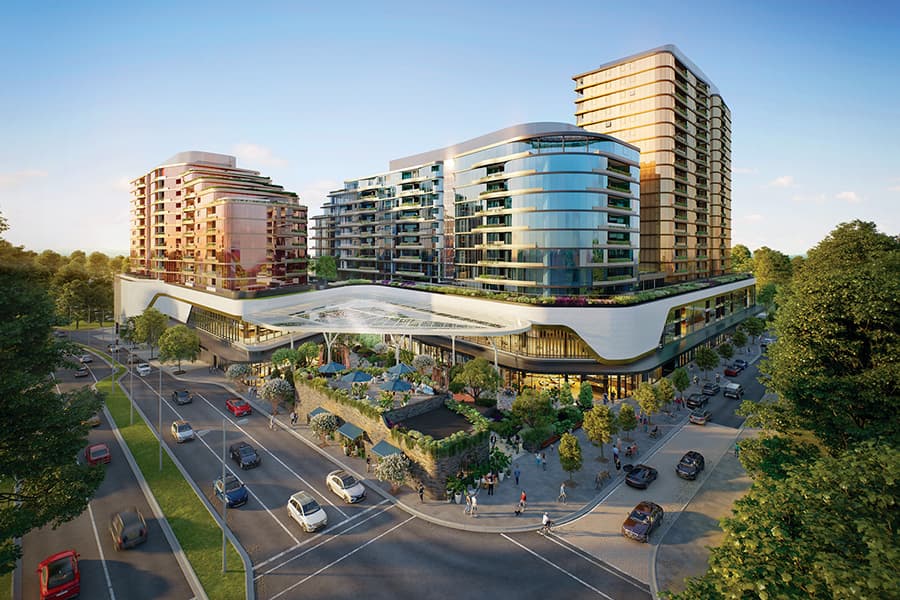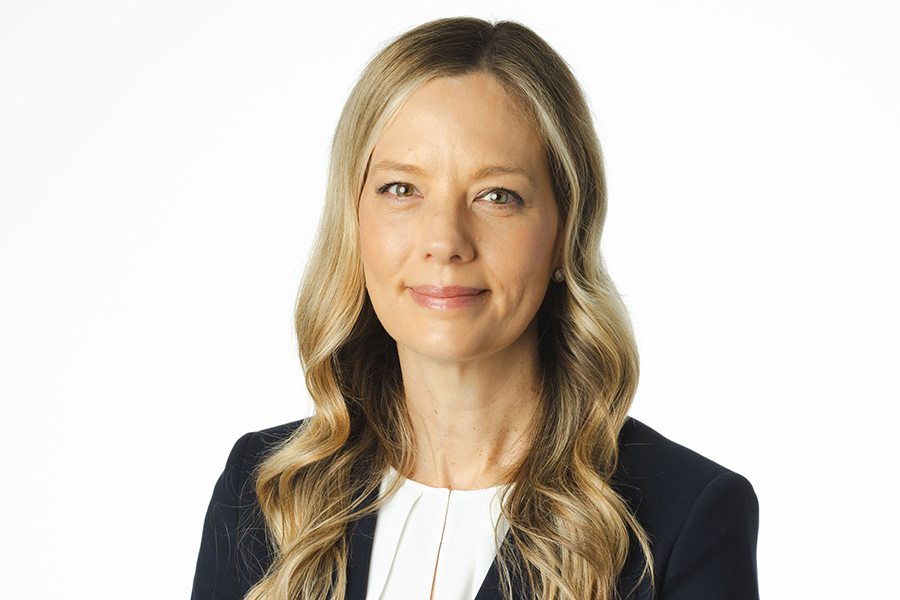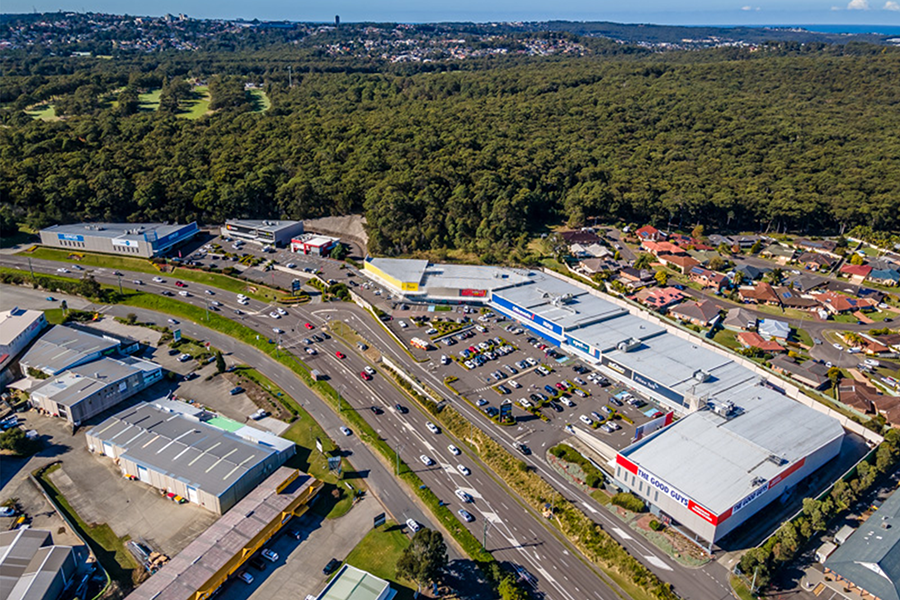Vicinity Centres (Vicinity, ASX:VCX) announced its results for the 12 months to 30 June 2020, with a statutory net loss after tax of $1.8 billion (FY19: $346.1 million statutory net profit after tax). This is comprised primarily of FFO of $520.3 million, down from $689.3 million in FY19, offset by a property valuation loss of $1,717.9 million (FY19: $237.1 million) and an impairment of goodwill of $427.0 million. FY20 FFO was impacted by the effects of COVID-19, which included anticipated rental waivers to be provided to tenants, partly offset by cost saving initiatives implemented as part of Vicinity’s response to COVID-19.
Distribution per security was 7.7 cents for FY20, compared to 15.9 cents in the prior year. The Board determined that no distribution would be paid for the six months to 30 June 2020 due to the uncertain impacts of COVID-19.
Grant Kelley, CEO and Managing Director, said: “FY20 was an extraordinary year. In the first half, we achieved solid financial and operating performance and continued to strengthen the quality of the portfolio. The majority of the second half was significantly impacted by the effects of COVID-19 on our business and our industry.”
Kelley continued, “With 400 million visitors to our centres annually, our primary focus during the pandemic has been on the health, safety and wellbeing of everyone who works in or visits our centres, our team members and the broader community.”
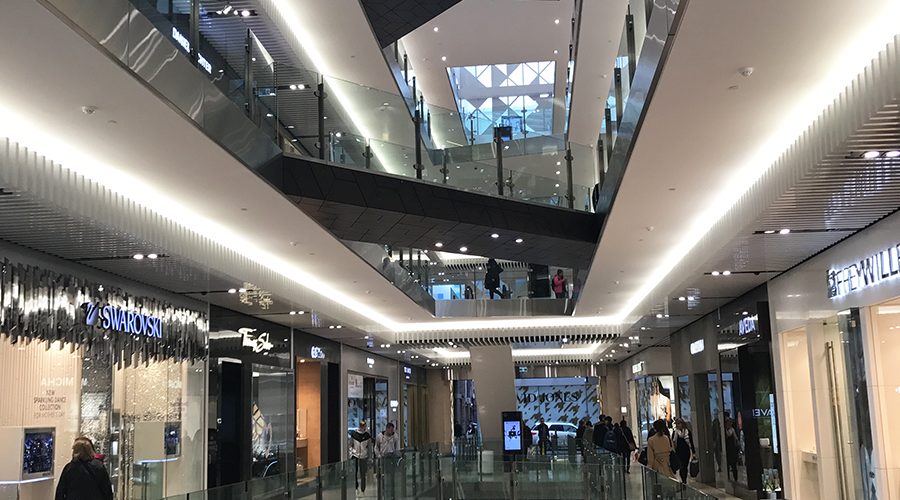
Vicinity Centre’s Emporium Melbourne has been highly affected by the pandemic
“We have been extremely proud of the agile approach taken by our centre teams in response to the evolving COVID-19 situation. They have worked tirelessly to keep our centres open to ensure that our customers can continue to access essential goods and services safely, and our retailers can continue to operate their businesses safely. Government restrictions introduced to manage the spread of COVID-19 across Australia including ‘stay-a thome’ directives, physical distancing measures, border closures and travel limitations, along with community concern, had a material impact on the retail industry. Further, the mandated closure of specific store categories, resulted in centre visitation across Vicinity’s portfolio falling to a low of 42% of the prior year in early April, prompting additional retailers to voluntarily close their stores on a temporary basis”, he said.
As the first wave of COVID-19 appeared to be contained in April 2020, government restrictions started to ease on a state by state basis. Outside Victoria and NSW, new COVID-19 infections became progressively lower and average centre visitation quickly improved. However, some states are experiencing a prolonged recovery period driven by a tourism downturn, Victorian stage 4 restrictions and delayed return of workers to CBD offices.
Kelley said, “Property remains one of the few industries that is providing waivers, not only deferrals, of rent to impacted businesses, notwithstanding legal obligations under leases. We have been negotiating in good faith with both our SME2 and non-SME retailers who have been impacted by COVID-19 to ‘share the burden’ and support them through these difficult times while balancing the need to secure future cash flows for Vicinity.”
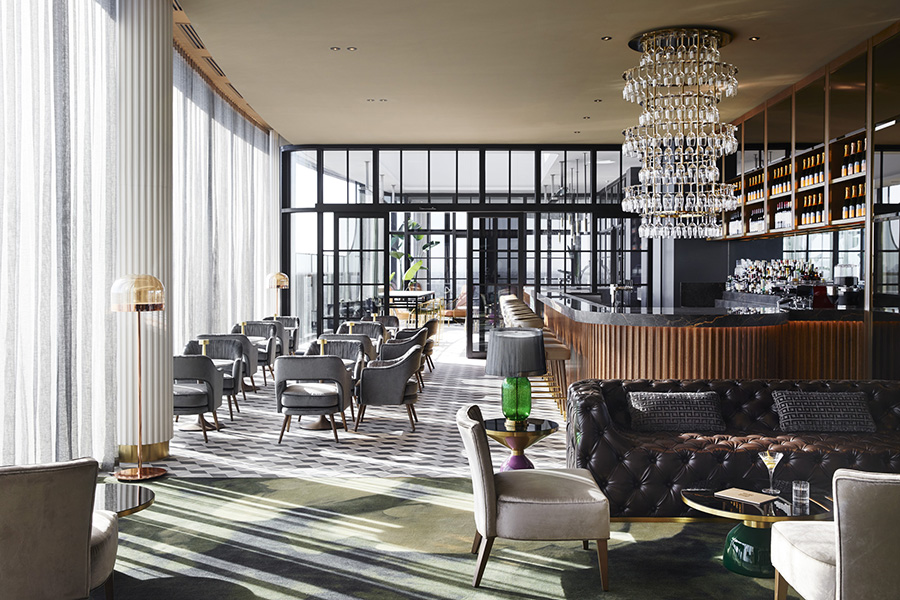
The Chadstone hotel and shopping centre have been affected by the tourism decline
Of the short-term lease variations agreed to date, 86% of the rent relief has been in the form of waivers and 14% deferrals. Where lease extensions have been agreed as part of negotiations, leases have been extended by 17 months on average.
Vicinity has made prudent financial decisions in response to the uncertainty caused by COVID-19, including reducing corporate overheads including the temporary stand down of team members on a full or partial basis, cancelling the FY20 Short Term Incentive award, and reducing Directors’ fees and Executive Committee salaries by 20% for three months and negotiating $950 million of new or extended bank debt facilities to increase liquidity.
Kelley said, “We continued to enhance our portfolio during the first half of FY20 by divesting three noncore assets for a 0.4% discount to their combined book values; adding to our leading DFO portfolio with the acquisition of a 50% interest in Uni Hill Factory Outlets; and completing development projects at The Glen, Roselands and opening Vicinity’s first hotel at Chadstone.
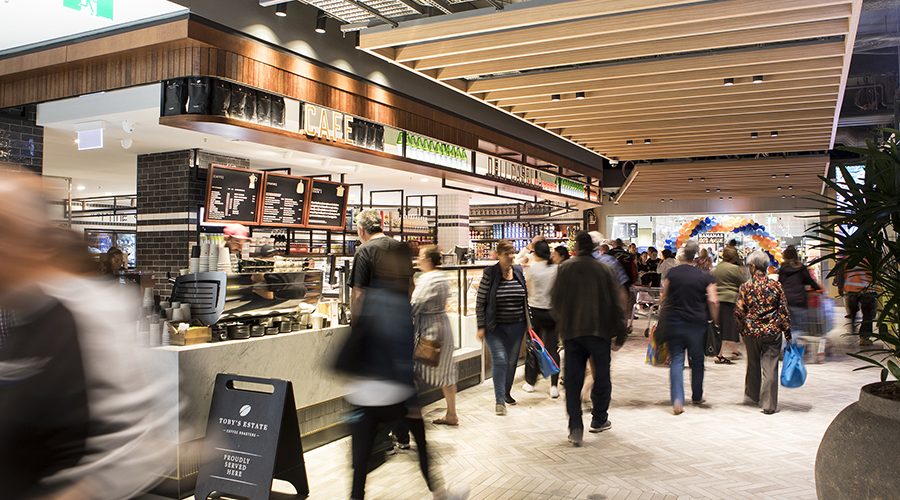
Roselands The Markets
“Enhancing our portfolio, combined with our intensive asset management approach, resulted in continued improvement in portfolio metrics over the first half. COVID-19 materially impacted second half performance and will continue to cause uncertain conditions, particularly in our Victorian and CBD assets. We continue to work through rent relief negotiations with affected tenants to reach mutually-beneficial outcomes, and are taking this time to forge stronger, longer-term relationships with like-minded retailers. We are also advancing the planning for future mixed-use projects so we can be prepared to develop in a stronger post-COVID-19 market at the appropriate time,” he said.
Government mandated and voluntary temporary closures of stores resulted in the store open rate falling to a low of 42% in early April 2020, during the initial peak of the COVID-19 pandemic, and this has affected the comparability of some sales reporting figures. Total moving annual turnover (MAT) growth4was -7.0% (FY19: +2.7%) and specialty and mini majors MAT growth4 was -10.3% (FY19: +3.1%). Specialty store productivity was $9,770 (FY19: $11,083) and portfolio occupancy was 98.6% (June 2019: 99.5%).
On Vicinity’s development pipeline, Kelley added, “We have re-prioritised our extensive development pipeline to preserve cash flow until economic conditions improve. This has resulted in the deferral of some projects, including the major redevelopment of Chatswood Chase Sydney. However, we are continuing to progress other opportunities without large near-term financial commitment, including the planning of major mixed-use developments.”
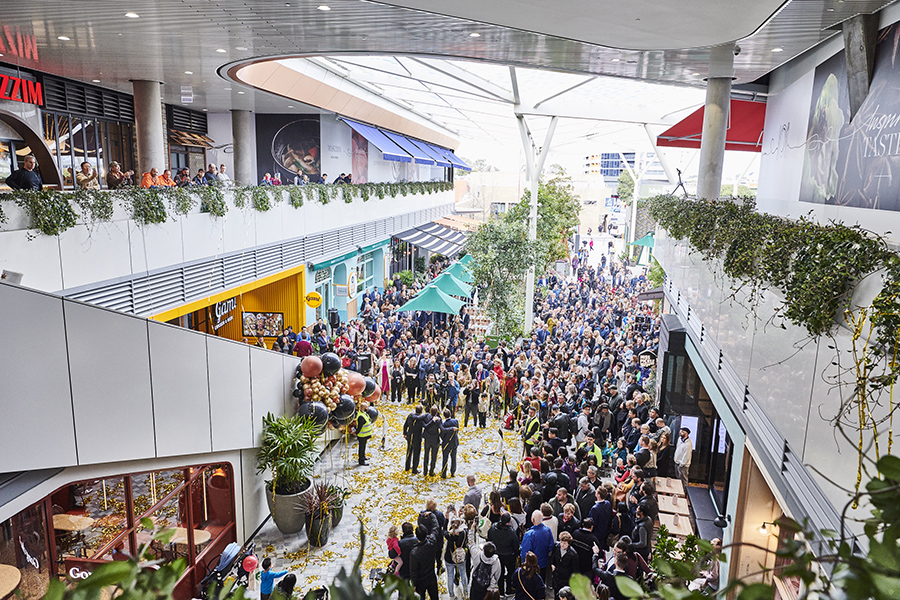
The Glen opened in late 2019
The final stage of the major redevelopment of The Glen completed in October 2019. The construction of three luxury residential towers on-site by Golden Age Group is largely complete and settlement with purchasers is on track for December 2020. This third-party development includes the addition of more than 500 new residences that will contribute to future retail sales growth within the centre. Learnings from this integration of residential and retail uses will be used to progress other mixed-use opportunities across our
portfolio.
In May 2020, Vicinity announced its 10-year vision for a 5.5 hectare site in the heart of Box Hill, which could realise up to 260,000m2 of mixed-use additions, including a new town centre, 25-level office tower and 48-level residential tower. As Victoria’s fastest-growing Metropolitan Activity Centre outside the CBD and with nearby health and education facilities, the site is prime for mixed-use development.
Joint owners Vicinity and Challenger released plans in July 2020 for the 11 hectare Bankstown Central site in Bankstown’s CBD. The master plan takes advantage of the major bus interchange, future T3 metro station and the University of Western Sydney’s new campus, and will realise up to 330,000m2 of mixed-use space across 16 development sites to be developed on a demand-led basis.
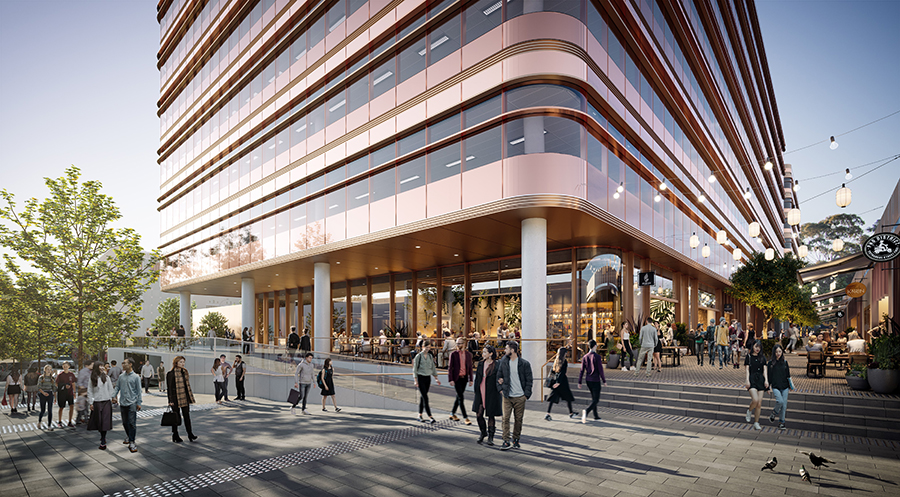
The Bankstown vision includes a new 2,000m2 ‘Eat Street’ with cafes and restaurants
During the year, Vicinity installed solar panels across eight projects taking the total installations to 25.2 MW of power. Across its managed portfolio, Vicinity pursued continued improvements in environmental efficiency, achieving a 12% reduction in energy intensity and 17% carbon intensity from the previous year, with a 49% recycling rate.
Kelley said, “We recognise the importance of creating sustainable, market-leading destinations for the future. Vicinity is tracking well towards our Net Zero 2030 carbon target, having reduced our energy intensity by 20% since June 2016.”
“The COVID-19 pandemic has accelerated consumer trends, including increased take-up of online retail spending. In addition, we have seen CBD office workers largely working from home, with an increase in the number of consumers shopping locally benefiting our suburban centres. Understanding this behaviour enables us to adapt our portfolio and operations to changing market and lifestyle trends. We believe Vicinity is well positioned to capitalise on these market and consumer changes over time, due to our strong data analytics capability, well-located market-leading destinations, and the embedded mixed-use opportunities which we are able to realise across the portfolio.”
“While the pandemic impacts continue to be challenging, particularly in Victoria, we have seen that consumers want to return to shopping centres quickly when COVID-19 restrictions ease. Following the Equity Raising this year, we have a strong balance sheet, with low gearing and a high level of liquidity, which positions us well to continue to deliver on our strategy in a measured way”, he stated.
Kelley concluded, “We remain committed to our strategy of market-leading destinations, which we believe will continue to deliver returns for investors over the medium to long term, and offer an attractive platform for our retailers and our consumers.”


